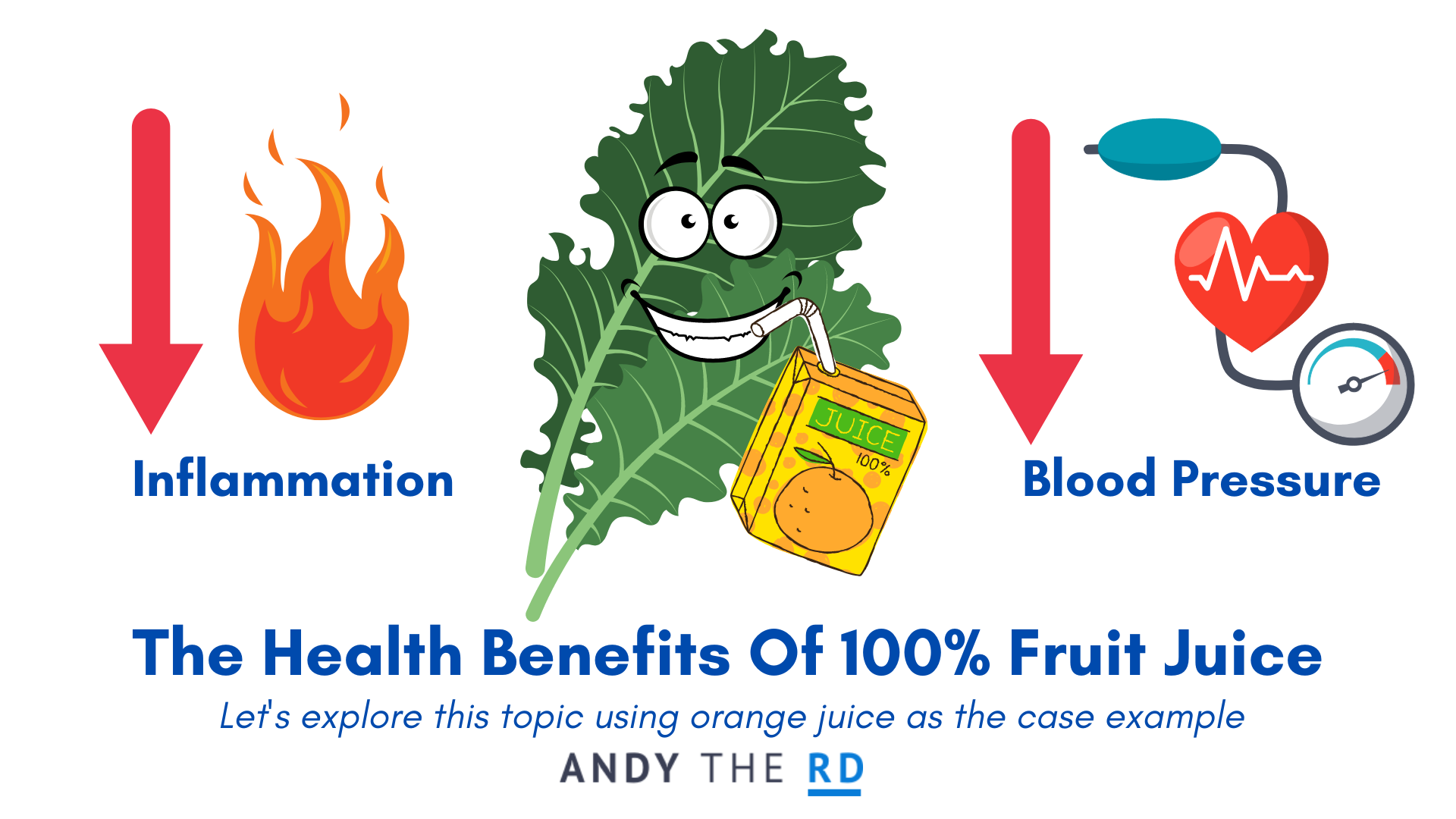June is Juice Celebration Month and I’m back once again, in collaboration with the Canadian Beverage Association, to discuss some of the benefits of 100% fruit juice.
In my first article, entitled The Three Biggest Myths About 100% Fruit Juice, I looked towards population data to correct a number of common misunderstandings about 100% fruit juice and the health of those who consume it.
What I didn’t do in that piece, which I will do today, is define exactly what is meant by the term 100% fruit juice and to explore specifically the various vitamins, minerals and nutrients that products in this category have to offer.
Let’s get right to it.
So What Is 100% Fruit Juice?
The term 100% fruit juice refers to products that are directly squeezed from fruit or made from juice concentrate (100% juice from which the water has been extracted) that is reconstituted with water.
From the data I’ve seen both locally and globally it does indeed appear that orange juice is the most popular of 100% juice products and is among the most heavily researched in the scientific community.
It also is the product that you may be most likely to see on your local grocery store shelves being fortified with important nutrients such as Vitamin D and calcium.
In fact, A 2010 study out of the American Journal Of Clinical Nutrition demonstrated that Vitamin D fortified orange juice may be as effective as Vitamin D supplementation when it comes to maintaining optimal levels – a very important consideration in Canada where Vitamin D is certainly a nutrient of public health concern.
But what else does orange juice, as a representative of the 100% fruit juice family, bring to the table?
Let’s find out.
The Nutritional Value Of Orange Juice
One of the misconceptions that affects perceptions around 100% fruit juice is that it lacks functional utility for the betterment of our health.
I attempted to refute that notion in my first Juice Month article, but will explore it further here.
A 2008 study out of the Journal of Agricultural and Food Chemistry looked at the effects of once daily cup of 100% orange juice and found that, over a 3 week period, the circulating levels of multiple antioxidants and vitamins ( vitamin C, folate, flavonoids, caretonoids) all increased.
In fact, data out of the USA suggests that citrus fruit juice is the primary contributor to dietary flavonoids (a family of antioxidant compounds) and that 100% orange juice drinkers tended to have higher dietary flavonoid intake.
More recently, Advances In Nutrition published a systematic review & meta-analysis demonstrating that 100% orange juice consumption had the potential to reduce certain bodily inflammatory markers such as hs-CRP and IL-6.
Given how quickly some people are to erroneously identify fruit juice as “inflammatory” and the role that bodily inflammation plays in health and disease, these findings are certainly both positive and intriguing.
But it doesn’t end there.
Orange Juice & Blood Pressure
High blood pressure, in addition to being a major risk factor for cardiovascular disease and stroke, is one of the most common reasons why people in Canada are prescribed medication.
Orange juice, although often thought of exclusively for its Vitamin C content, brings many other unique nutritional compounds to the table ( some of which I discussed in the previous section!).
These compounds, including a very good amount of potassium, may have a unique role to play in blood pressure management.
In fact, oranges are one of the few foods that contain the bioactive flavonoid compound known as hesperidin which has been demonstrated to contribute to orange juice’s blood pressure lowering potential.
Findings like these are the tip of the iceberg in terms of our scientific understanding of the very specific health benefits of various fruits and their juices – keeping in mind that orange juice is just one of many.
Final Thoughts
In today’s article I’ve used one of the most popular and well researched varieties of 100% fruit juice, orange juice, to demonstrate the unique and quantifiable benefits that these products can offer to the average Canadian.
In light of misunderstandings and stigma around 100% fruit juice consumption, it is important for health professionals like myself to contribute to a better understanding of the actual value these products have and to remove any fear or guilt around their use.
I hope you enjoyed reading today’s piece as much as I enjoyed researching and writing it.
Until next time,
Andy De Santis RD MPH



